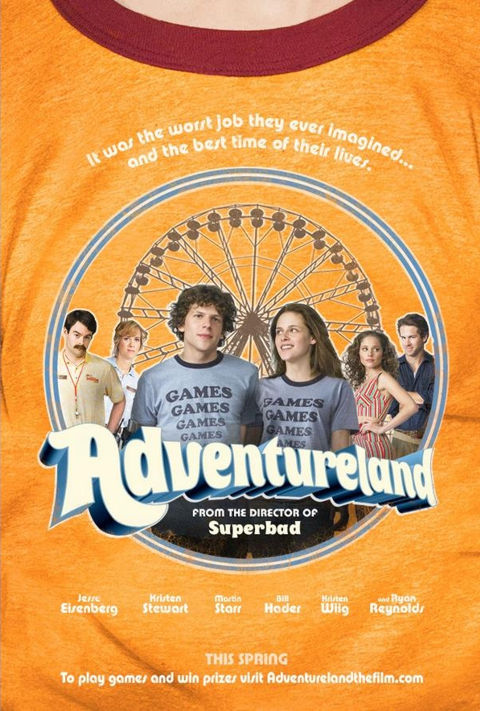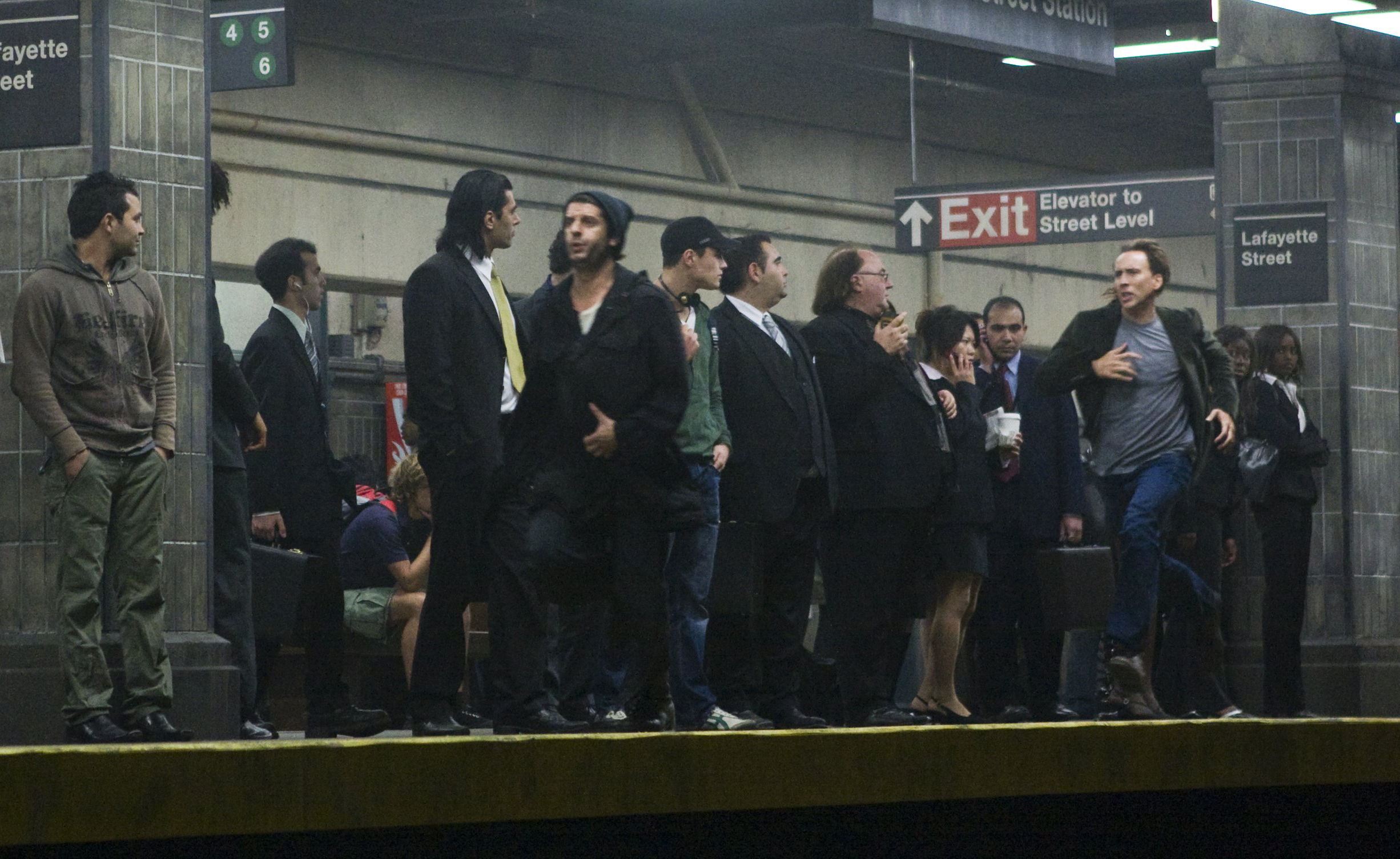
Trailers are easily the bane of the film world. Whether it’s their uncanny ability to oversell the action or comedy in a film, or feature all the best jokes or stunts, or even give away massive spoilers, trailers often seem to exist solely to ruin the movie-watching experience. The most unfortunate case is when a trailer simply sells a film as something it’s not. In almost every instance of this it is due to a bad marketing department trying to make a unique gem into a marketable feast for the masses. It rarely works, and often alienates most of the audience who ate it up. One of my favourite examples is the 2006, Vince Vaughn / Jennifer Aniston comedy, The Break-Up; the film was sold as some sort of silly romantic comedy, when it was actually a very funny and poignant film examining the pains of hard break-ups. The latest film to be given a massive screwing by its trailer is Greg Mottola’s Adventureland.
The film featured unremarkable trailers selling the film as another Superbad rip-off, only this time by the guy who actually directed Superbad. Don’t get me wrong - I love Superbad – but comparing it to Superbad really does Adventureland a disservice. Adventureland is unlike Superbad in every way, except maybe its rustic-hued shooting style. The storylines are totally different, the cast is mostly completely different, and the tone is exceptionally different. Yes, it’s a comedy, but only barely.
I really can’t stand the term “dramedy” as a name for genre or category of film. It seems to assume that life’s dramas are somehow removed from everything else, and that to add humour to a realistically dramatic situation somehow means it isn’t still dramatic. Life in many ways is a comedy, albeit an occasionally tragic one, but ultimately there is humour to be found everywhere and in most every situation. Adventureland is one of the few films that seem to genuinely recognize that. It is a funny film much of the time, and there are some creatively inspired gags and lines, but the film is also quite serious. It’s a comedy unafraid to throw in vast expanses of darkness or touching contemplation; it’s also a quite, emotional film that takes pleasure in throwing in scenes funny enough to stand alongside the best scenes from any of the recent great comedies.

Adventureland is about James Brennan, a college graduate with an impressive set of life goals as a journalist and an acceptance to Columbia for grad-school. Unfortunately life kicks into gear and James’ father is demoted at work and the family is forced to take a severe income drop. The family moves to Pittsburgh and James must take the only summer job he’s actually qualified for: a games operator at Adventureland, the local amusement park. It’s about as crappy a job as there is, but there James meets Emily. He begins to fall for her almost immediately, and they soon enter into a relationship. Unfortunately things aren’t too rosy for the couple. James must deal with his family’s dwindling financial resources, a crappy job he doesn’t want, and his insecurities about sex and relationships, while Emily has a sad secret just waiting to reveal itself.
As you can see, the film is a comedy, but the plot itself is quite serious in nature. What surprised me most about the film was Mottola’s deft handling of tone. It would be very easy to make the film overly comedic without letting the more serious moments play out. The film could also have been way too serious all the time, with the comic timing falling flat and gags feeling stale. Mottola manages to weave together the light and dark in a uniquely realistic and relatable way. When a movie that has more than one gag involving erections is also deeply affecting you know the director knows what he’s doing. It really shouldn’t be too surprising considering Mottola is a veteran of the Apatow-produced sitcom, Undeclared. That TV show, while skewing far more to the funny, also managed to be emotional and tender.

The acting is also top-notch. Jesse Eisenberg and Kristen Stewart play the leads, and do so effectively and with great chemistry. Eisenberg, in particular, brings to his role some great touches; he plays his character as bright and ambitions, but severely insecure. The cast is also filled with a delightful selection of characters. Kristen Wiig and Bill Hader bring the funny as the managers of Adventureland. Margarita Levieva is quite inspired as the hot girl at work. But the best secondary characters are Martin Starr as the eccentrically nerdy Joel, Matt Bush as James’ former childhood friend, Frigo, and Ryan Reynolds as Mike Connell, the cool older maintenance guy who supposedly got to play with Lou Reed.
Adventureland also happens to be a period film. It takes place in the distant past of 1987. I’m not exactly sure how necessary the time-period is to the film, but I found it added a nice character to the atmosphere of the film. It’s also a great excuse to play some awesome music, and some cheesy music as well. A common thread involving a grating loop of songs played over the park’s intercom is hilarious (and something I totally related to, being a former employee of Canada’s Wonderland.) And really, any time a film gets to play the song Rock Me Amadeus is a good time, and trust me when I say there is more than one time.

Adventureland takes all the fun of the crappy job genre, and mixes it with the heartfelt and realistic emotions surrounding financial straits and relationships. If you are looking for the next Superbad you’ve found the wrong place, and I’m sorry you were misled. If you can handle in its place a funny and poignant film about the trials of life then Adventureland is perfect. Instantly quotable and deeply touching, Adventureland is easily my favourite movie of the year so far, and now I simply cannot wait for what Greg Mottola does next.
Read more!




